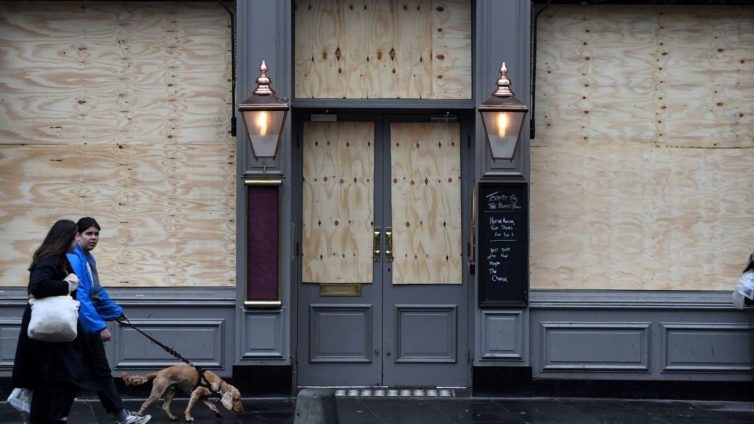There are almost 10,000 fewer licensed premises across Britain since the start of the coronavirus pandemic - with a rush of closures taking place since the summer despite a reopening of the economy, according to a report.
The latest market recovery monitor from industry consultants CGA and business advisory firm AlixPartners said the sector, including bars, pubs and restaurants, had shrunk by 9,900 sites to date with 980 closing their doors between July and September alone - a rate of 16-per-day.
It pointed to a range of "operational challenges" including labour shortages, disruption to supply and rising costs as being responsible for the latest wave of closures, which built on just shy of 6,000 during 2020.
The study said small, independent businesses bore the brunt of the problems as chains were more able to adapt to the challenges facing firms since the July reopening for the hospitality sector.Advertisement
Only managed estates were able to eek out growth though it was small.
The report highlighted the plight of nightclubs and said that they had suffered particularly badly with almost 100 lost since July to leave just over 1,000 in total by September.
Hospitality was among the sectors worst hit by lockdowns to control the spread of the disease since March 2020 and the largest claimant of furlough support through to the scheme's demise at the end of last month.
Industry body UKHospitality, which had pleaded for the wage aid to be extended, estimates 660,000 jobs have been lost in the sector during the pandemic.
It is campaigning for renewed support including for the rate of VAT - cut from 20% by the chancellor temporarily last year to help operators fight back - to be maintained at its interim level of 12.5%.
Graeme Smith, AlixPartners' managing director, said of its report: "These figures are a stark reminder, if needed, that the full lifting of restrictions in July did not signal an end to the challenges faced by hospitality businesses.
"The impact on nightclubs, which were unable to trade at all during the pandemic, has been particularly acute with almost one in 10 sites closing in the past two months.
"Demand remains strong but with staff shortages, utility cost inflation and supply-chain disruption, there are renewed efforts to secure continued government support to the industry to help it weather this storm as the reopening and rehabilitation process continues through what may be a challenging winter."
Latest Stories
-
Center for Learning and Childhood Development Director Dr Kwame Sakyi honoured at Ghana Philanthropy Awards
2 hours -
Asantehene receives 28 looted artefacts
2 hours -
CAF WCL 2024: Ghana’s Thelma Baffour wins title with TP Mazembe
3 hours -
Benjamin Boakye slams politicisation of energy sector issues and ECG’s inefficiencies
3 hours -
Erastus Asare Donkor and Dr Neta Parsram win big at 10th Mining Industry Awards
4 hours -
Government is “suppressing information” about power sector challenges – IES Director
4 hours -
Majority of our debts caused by forex shortfall – ECG Boss
4 hours -
Pan-African Savings and Loans supports Ghana Blind Union with boreholes
5 hours -
Bole-Bamboi MP Yussif Sulemana donates to artisans and Bole SHS
5 hours -
Top up your credit to avoid potential disruption – ECG to Nuri meter customers
5 hours -
Dutch & Co wins 2024 Entrepreneur of the Year Award
5 hours -
We’ll cut down imports and boost consumption of local rice and other products – Mahama
8 hours -
Prof Opoku-Agyemang donates to Tamale orphanage to mark her birthday
9 hours -
Don’t call re-painted old schools brand new infrastructure – Prof Opoku-Agyemang tells gov’t
9 hours -
Sunon Asogli plant will be back on stream in a few weeks – ECG
9 hours

